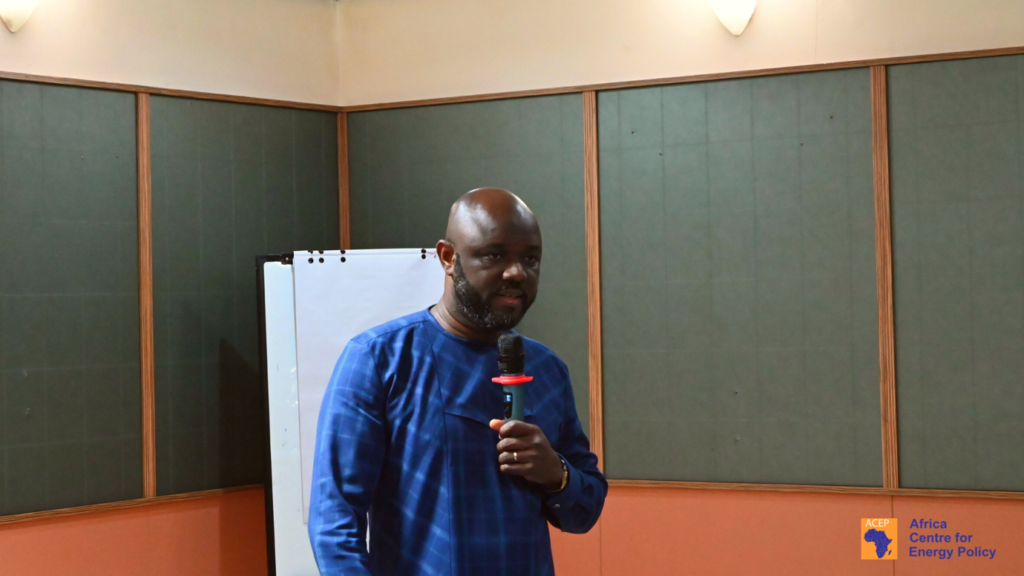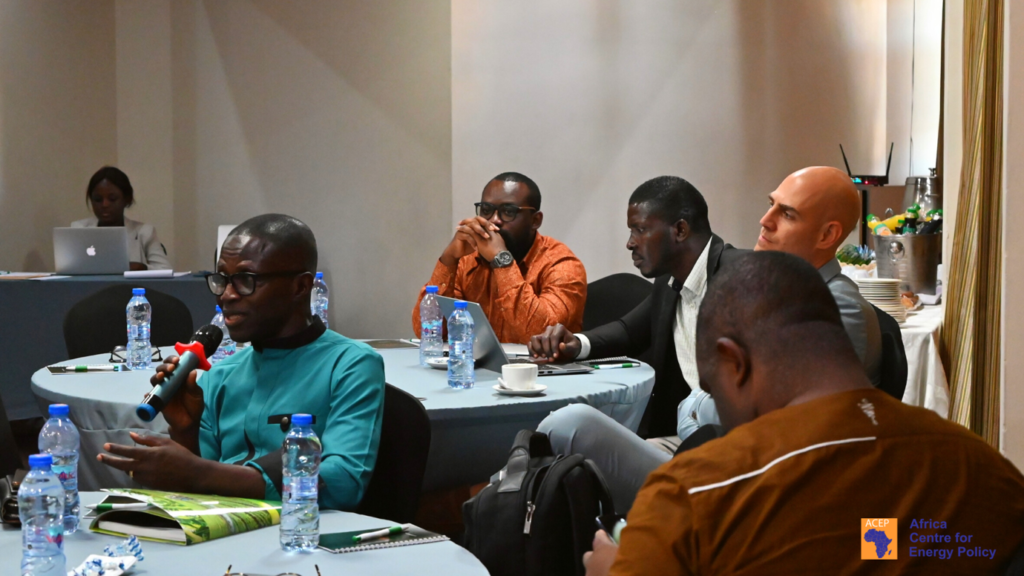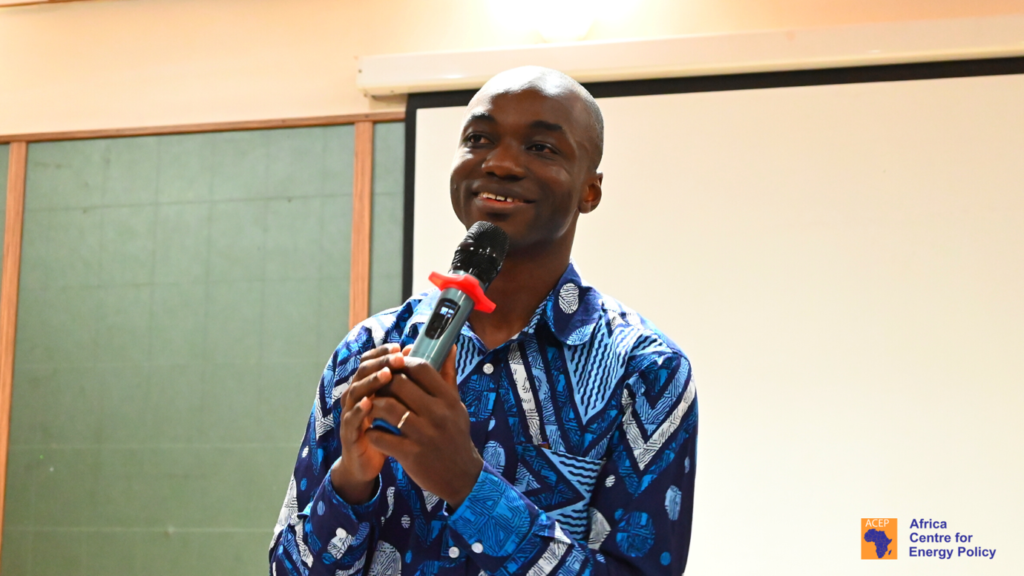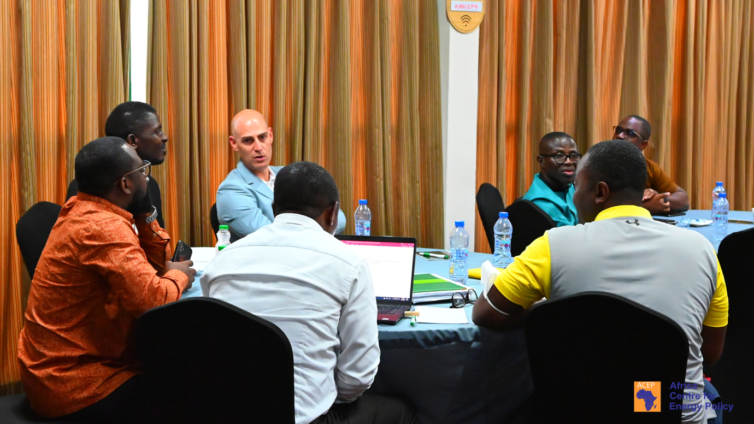Stakeholders relevant to climate financing met on Thursday, September 22, 2022, to discuss the implementation and delivery of climate finance in Ghana.
The support pledged to Africa for climate finance by the world’s wealthiest economies is yet to materialize.
As of 2020, only $83 billion of the $100 billion per annum commitment made for climate action by developed countries to developing countries had been met. Of this, only $20 billion was provided to Africa between 2016 and 2019.
In Ghana, an estimated $9 billion to $15 billion is required to implement the program of actions in the revised Nationally Determined Contributions (NDCs), a climate action plan to cut emissions and adapt to climate impacts.
To understand the climate finance landscape in Ghana, the Africa Centre for Energy Policy (ACEP), in partnership with APRI - Africa Policy Research Institute (APRI), a think tank based in Berlin, Germany, engaged key stakeholders, who met on Thursday, September 22, 2022, at Alisa Hotel in Accra, Ghana.
The stakeholders were drawn from government agencies, green funding agencies, banks and other organizations that are active in the climate finance landscape. They examined the systems that underpin public finance delivery and implementation in Ghana.
Mr Benjamin Boakye, the Executive Director at ACEP, indicated that there was a need to identify the gaps and tools required to build systems to attract climate financing and discuss both internal and external approaches of generating finance, and how to use these resources to solve climate issues.

According to Dr Olumide Abimbola, Executive Director of APRI, it is important to have a very clear understanding of the experiences of Ghanaian stakeholders regarding climate finance.
“We need to have an empirical analysis of the gaps, both in terms of the amount coming into the country as well as in terms of the policy priorities of the Ghanaian government”, he said.
Speaking on the challenges Ghana faces in accessing climate finance, participants highlighted the need for applicants of international climate funds such as the Green Climate Fund (GCF) and the Global Environment Facility (GEF) to build capacity in areas relevant to the management of the projects they plan to embark on.

The discussions also revealed that the lack of transparency in allocating the funds, the high demand for climate data and funding proposals, and co-financing requirements, among other factors, make access to climate financing challenging for Ghana.
Participants believed that qualified human resource is necessary to undertake documentation to receive funding.
Representatives from the banking sector highlighted the importance of financial intermediaries (e.g. Commercial banks, Microfinance institutions, mutual fund companies) towards climate financing.
The discussions revealed that such intermediaries are relevant to access finance for green-focused businesses that do not have capacity to access green funds from major funding sources.

Stakeholders from the government agencies also reiterated the need for developed countries to redeem their commitment to provide finance towards climate actions.
This was particularly important as Ghana needs adequate funding to meet its climate action targets it has highlighted in its revised Nationally Determined Contributions (NDCs) under the Paris Agreement.
The stakeholder engagement was carried out in the context of an ongoing research project on climate finance in Africa.
This engagement helps ACEP and APRI build evidence on climate finance needs, perceptions, challenges, and pathways to solutions, and contribute to discussions before and during COP27 by providing empirical evidence to support negotiating positions around equity and fairness in accessing finance and effectiveness.
The study will be published at the end of October 2022, followed by a larger stakeholder workshop in Accra that details the results and communicate appropriate steps for Ghana to obtain the relevant funding for climate action.
Key Highlights
- Ghana needs an estimated $9-14 billion to implement its climate action plan as communicated in the country’s Nationally Determined Contributions (NDCs).
- Stakeholder engagement reveals challenges in terms of capacity building, transparency issues on fund allocation, and missing climate data
- Local banks called for cheap financing (i.e., low-interest rates) to ease on-lending to green businesses who do not have the capacity to access core financing from the major climate funds.
- The engagement also called for international agencies and developed countries to redeem pledges made to support climate action in developing countries
- The stakeholder engagement is part of a wider project on climate finance in Africa, Study to launch in October
Latest Stories
-
Ghana-Russia Centre to run Russian language courses in Ghana
5 hours -
The Hidden Costs of Hunger: How food insecurity undermines mental and physical health in the U.S.
5 hours -
18plus4NDC marks 3rd anniversary with victory celebration in Accra
8 hours -
CREMA workshop highlights collaborative efforts to sustain Akata Lagoon
8 hours -
2024/25 Ghana League: Heart of Lions remain top with win over Basake Holy Stars
9 hours -
Black Queens: Nora Hauptle shares cryptic WAFCON preparation message amid future uncertainty
10 hours -
Re-declaration of parliamentary results affront to our democracy – Joyce Bawah
10 hours -
GPL 2024/25: Vision FC score late to deny Young Apostles third home win
10 hours -
Enhancing community initiatives for coastal resilience: Insights from Keta Lagoon Complex Ramsar Site Workshop
10 hours -
Family Health University College earns a Presidential Charter
10 hours -
GPL 2024/25: Bibiani GoldStars beat Nsoatreman to keep title race alive
10 hours -
GPL 2024/25 Bechem United keep title hopes alive with narrow win over FC Samartex
10 hours -
2024/25: Dauda Saaka scores as Asante Kotoko beat Dreams FC
10 hours -
M.anifest reflects on galamsey’s devastation 11 years after ‘No Shortcut to Heaven’
11 hours -
We’ll have the last laugh – Sammy Gyamfi slams EC’s “cantata” re-collation
11 hours

